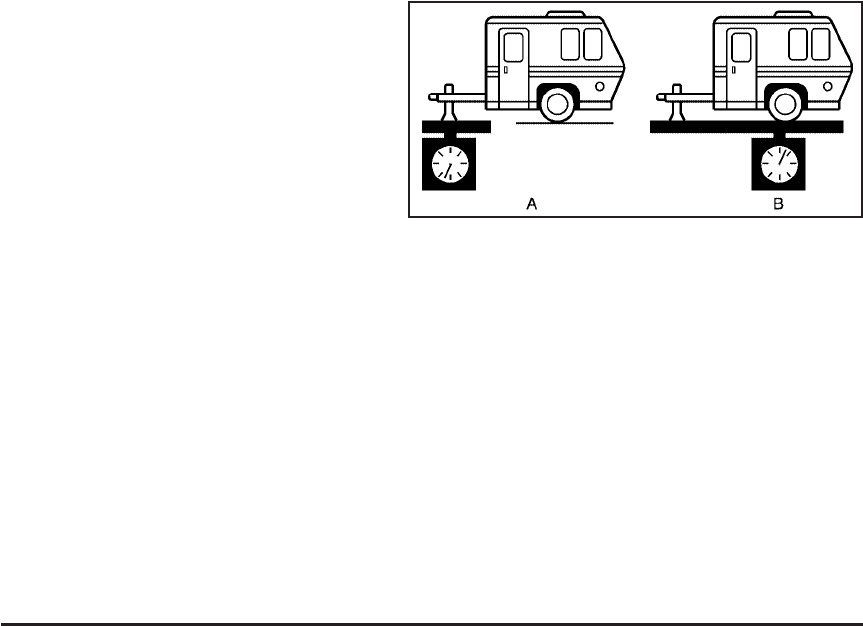
Weight of the Trailer Tongue
The tongue load (A) of any trailer is an important
weight to measure because it affects the total
or gross weight of your vehicle. The Gross Vehicle
Weight (GVW) includes the curb weight of the
vehicle, any cargo you may carry in it, and
the people who will be riding in the vehicle. If you
have a lot of options, equipment, passengers
or cargo in your vehicle, it will reduce the tongue
weight your vehicle can carry, which will also
reduce the trailer weight your vehicle can tow. And
if you will tow a trailer, you must add the tongue
load to the GVW because your vehicle will be
carrying that weight, too. See Loading Your
Vehicle for more information about your vehicle’s
maximum load capacity.
The trailer tongue weight (A) should be 10 percent
to 15 percent of the total loaded trailer weight, up to
a maximum of 600 lbs (272 kg) with a weight
carrying hitch. The trailer tongue weight (A) should
be 10 percent to 15 percent of the total loaded
trailer weight, up to a maximum of 1,000 lbs
(453 kg) for the 1500 series and up to a maximum
of 1,500 lbs (680 kg) for the 2500 series with a
weight distributing hitch.
Do not exceed the maximum allowable tongue
weight for your vehicle. Choose the shortest hitch
extension that will position the hitch ball closest
to the vehicle. This will help reduce the effect
of trailer tongue weight on the rear axle.
428


















